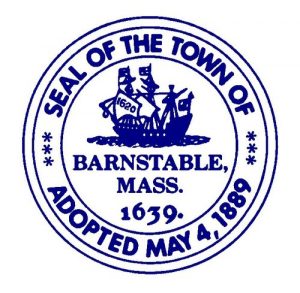BOSTON – While opioid-related overdose deaths are on the decline for the second straight year in Massachusetts, fentanyl remains a key factor in the toxicology of deceased overdose victims.
The Massachusetts Department of Public Health (DPH) says opioid-related overdose deaths in the state declined by 4-percent in 2018 compared to 2017, according to the Department’s latest quarterly report on opioid-related overdose deaths, released on Wednesday.
The reduction in opioid-related overdose deaths marks the second consecutive year-over-year decrease in the state. The 4 percent decline follows a 2-percent decrease in opioid-related overdose deaths between 2016 and 2017. In total, opioid-related overdose deaths declined by 6-percent between 2016 and 2018.
The report also found that fentanyl remained a key factor in opioid-related overdose deaths. The synthetic opioid, which the Drug Enforcement Agency (DEA) estimates to be 80 to 100-percent times stronger than morphine, was present in the toxicology of 89-percent of those 2018 deaths in which the victim underwent a toxicology screen.
Meanwhile, the rate of heroin or likely heroin present in overdose deaths has been declining since 2016, falling to about 34-percent of opioid-related overdose deaths.
“While we are encouraged to see fewer opioid-related overdose deaths for a second consecutive year and a 35-percent decrease in reported opioid prescriptions since 2015, the opioid epidemic continues to present a very serious challenge that is made more difficult due to the presence of fentanyl,” said Governor Charlie Baker.
“We look forward to working with our colleagues in the Legislature to continue ramping up the Commonwealth’s funding for prevention, intervention, treatment and recovery services in the FY20 budget, in addition to the Administration’s proposal to strengthen the hand of law enforcement by providing $5 million to support a new Regional Fentanyl Interdiction Task Force.”
In 2018, preliminary estimates showed 1,974 confirmed and estimated opioid-related overdose deaths, or 82 fewer deaths than the 2,056 confirmed and estimated deaths in 2017. There were 2,099 confirmed deaths in 2016.
While the report shows an overall decline in opioid-related overdose deaths, it finds that non-Hispanic black males experienced a 45-percent increase from 2016 to 2017 in the opioid-related overdose death rate.
As part of that response, the DPH says it has invested more federal opioid funding targeting communities of color, trained more individuals who are black or Hispanic as certified addiction counselors, and promoted public awareness campaigns in predominant communities of color. In addition, the DPH plans to establish a community advisory process to help develop culturally sensitive programming and treatment and recovery strategies.
The report also shows a decrease in the amount of opioid prescriptions reported across the state. It found that in the fourth quarter of 2018, there were 546,000 Schedule II opioid prescriptions reported to the Massachusetts Prescription Monitoring Program, representing a 35-percent decrease from the first quarter of 2015. Slightly over 246,000 individuals in Massachusetts received prescriptions for Schedule II opioids in the fourth quarter of 2018, a 37-percent decrease from the first quarter of 2015.
Other findings of the latest opioid report include:
- The percentage of opioid-related overdose deaths where prescription drugs were present trended downward from 2014 through 2016 and has remained stable since then. In the third quarter of 2018, approximately 15-percent of opioid-related overdose deaths had prescription opioids present in toxicology.
- Since 2017, the presence of some stimulants such as cocaine and amphetamines in opioid-related overdose deaths has been increasing.
- In the third quarter of 2018, the greatest number of suspected opioid-related overdoses treated by Emergency Medical Services continued to be among males aged 25-34, accounting for 25-percent of opioid-related incidents with a known age and gender.
By TIM DUNN, CapeCod.com News Center

























